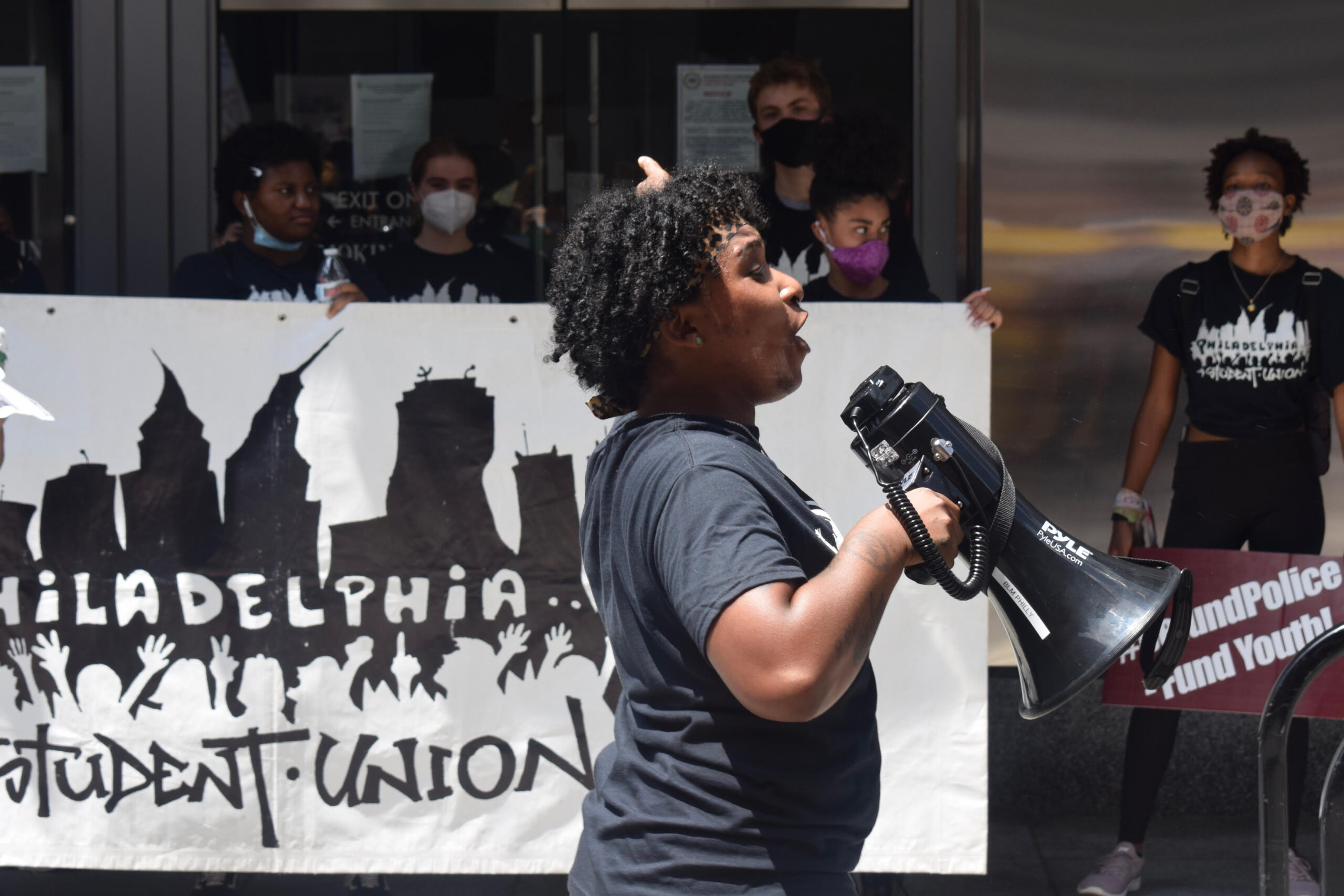
16 Dec A Year in the Streets: Two Philly-Based Visual Storytellers Reflect on Documenting Movements for Change
BY MARIAM DEMBELE AND JASON PETERS
Two former classmates at Temple University, both notable visual storytellers, talk about how their work overlapped in Philly during 2020. Mariam Dembele works as an organizer and mediamaker with Movement Alliance Project, leading their Philly We Rise initiative, whereas Jason Peters works as an independent freelance journalist. The two met while studying abroad in London back in 2016, but now find themselves traversing Philly’s streets documenting mass movements and protests.
This year was unlike any other. The pandemic put into sharp relief the failures and the faults of the country. From a lack of adequate healthcare to holes in workplace protections, from rent overages to repeated instances of police brutality, this time of austerity and suffering highlights that the fight for human rights is more dire than ever. Seeing the need and the possibility for massive systematic change, people have taken to the streets in droves to demand immediate action. For Jason and Mariam, being a part of it, capturing the moments, and amplifying the messages coming from their communities has been incredibly powerful and humbling.
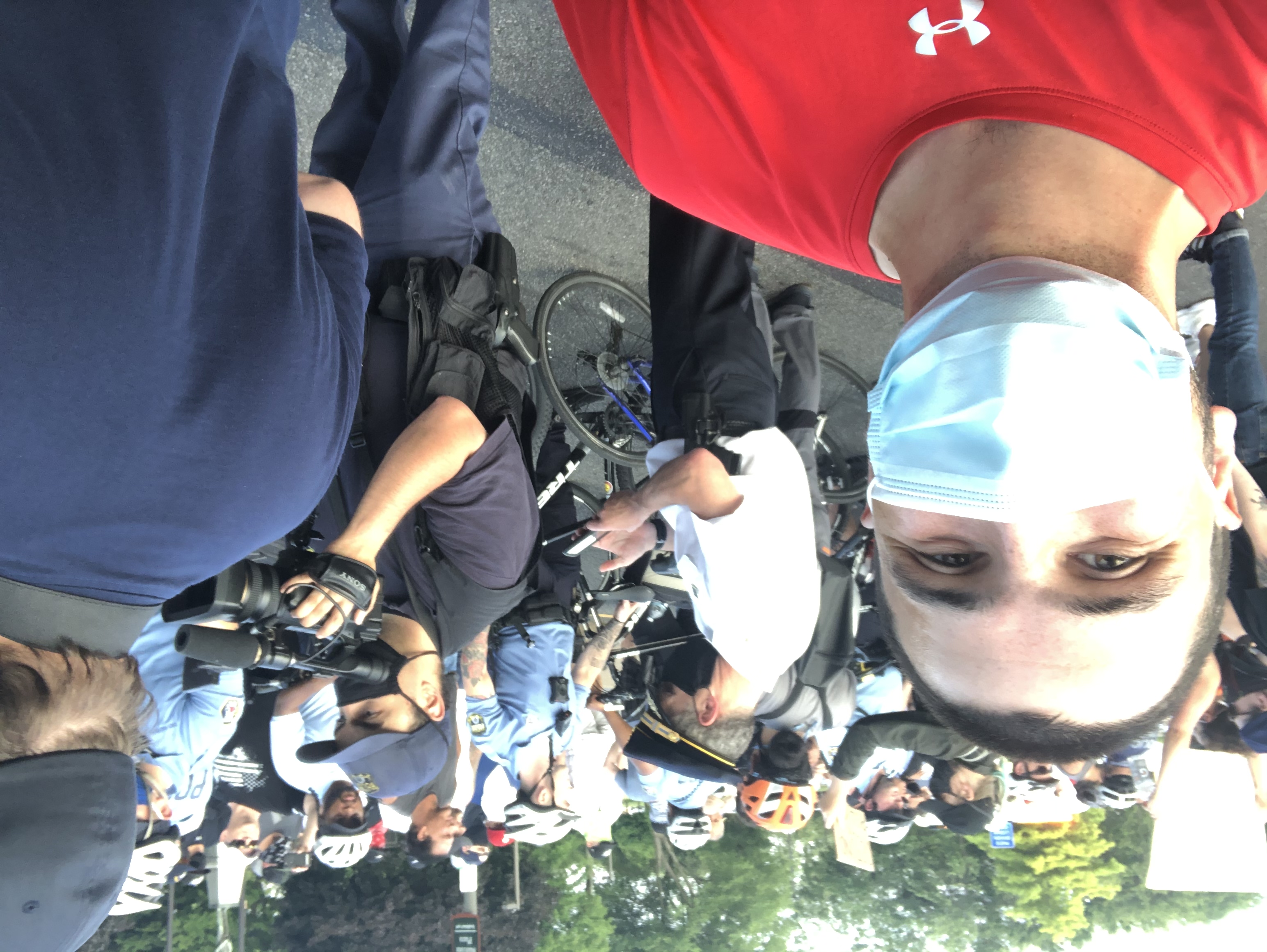
Jason writes for a variety of Philadelphia-based outlets. “My focus is mostly on working class issues,” says Peters. “My goal is to shine a light on the variety of ways that regular people are taken advantage of and the methods people use to fight for themselves.”
Through photo and video documentation, Mariam aims to highlight the power of collective organizing, bring more people into the social justice movement, and create a visual archive of the fight for justice in Philadelphia that students, journalists, and community members can look back at generations from now.
In this conversation, Mariam and Jason discuss the importance of images and video within their work, and their experiences covering movements such as the aftermath of Walter Wallace’s death, neighborhood protests against private companies, and demands for votes to be counted after the presidential election.
Listen to their full conversation here:
Jason Peters: I think a good place to start this off is George Floyd, a perfect example of a moving image having a rippling effect across the country in the name of a social change and justice. How did you see the nature of your work changed pre and post George Floyd?
Mariam Dembele: It was an impactful moment. I feel like it speaks to how video and images can cause people to take action. In my work, I primarily document protests and social justice movements. So I like to show the power of people and show people in a very strong way, to reflect what we can accomplish collectively. By documenting that style of work, I hope to bring more people out. To say “Oh wow. See all these people taking action, taking over the streets. I want to be a part of that. I want to join that.”
But I think video also has another side where if you see something that is as super, super, upsetting and horrific as the George Floyd video, that also has a similar impact where it causes an immense amount of emotion. And you’re like, “I can’t sit with this. I can’t stay where I am. I can’t sit at home. I have to get out, and I have to do something.”
JP: The reason that I got legitimized as a journalist was doing essentially what you do; protest coverage, covering union efforts and being out in the street, kind of operating as an aggregate, saying, “This is where a protest is.”
I wake up and tweet information out in the morning. Then I would go to these things, cover them for people who couldn’t go there or just so people could see that these things are happening. You don’t see a lot of coverage of sanitation rallies or like prison conditions, maybe it gets 15 seconds on like the six o’clock news and an Inquirer write-up.
MD: How do you decide what you want to document?
JP: I’m the guy that scoops up the stuff that falls through the cracks. Cause otherwise I have no value, I have no value if I’m covering the same things as other people. So I have to be the first to a scoop or the only person that can cover a story in detail. I think my proximity to the community is what allows me to do that. Like I live in South Philly, I am extremely social, meaning that I have friends Uptown, friends in West Philly, friends in the Northeast, I’ve got friends that lean right as well as lean left. So I can kind of get to anyone and am not vilified the way someone else might be. I’m able to walk up and say, “Hey, I’m an independent journalist. I freelance for all these different companies in the city.” People can’t just go, “fake news,” because I’m everywhere. Which one is fake news? So I’ll have that argument with people and then it opens the door.
How do you decide where to go and what to do?
MD: It’s a similar thing of wanting to share stories that aren’t being covered by mainstream media. Last year, there were a lot of protests around the PES oil refinery that the mainstream media was not covering. This was ahead of the explosion. Myself and some other folks who I know through organizing, we were out there to take photos and document it, to share it on our platform to raise awareness that the oil refinery and the pollution coming from it was having a massive impact on the community surrounding it.
That caused people who are in the movement world to want to come out, find out more about the refinery, and join the protests. Then after the explosion, that’s when mainstream media was like “Oh wow! There’s a huge story here. There’s all these people in the neighborhood who have been saying we want to shut it down.”
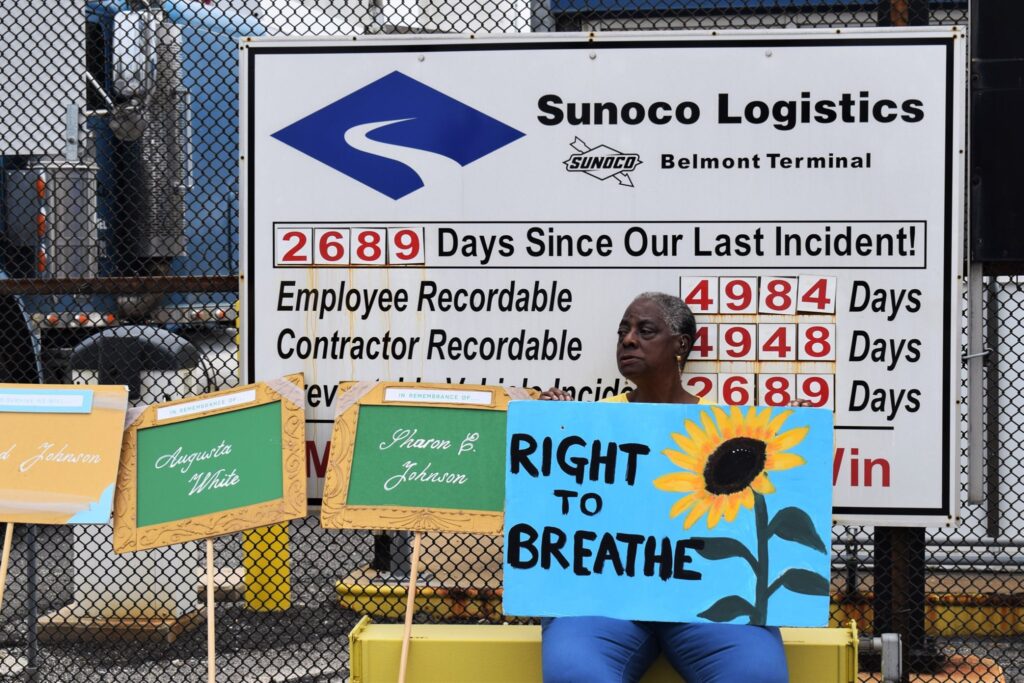
JP: Is there an example where you think your work has caused an explicit difference?
MD: I think the Count Every Vote coverage. So this past election cycle there was a huge amount of people who came out the days following the election and said, “we need to make sure that every single vote in Philadelphia and in Pennsylvania is counted” in response to Trump administration’s series of lawsuits and efforts to stop the count.
And so we, as Philly We Rise, we’re basically on the ground, every single day after, documenting folks out there. I think it was just such a powerful thing that happened there. Opposite to the Trump supporters who came out who had a very negative tone, the protesters on the left had a very positive and inspirational approach. They were dancing. They were joyous. They were in the streets, they were saying, “this is democracy and we want democracy to happen. We want the votes to be counted.”
We were there taking photos of that, taking video, documenting it, sharing it, inviting other people to come out to the streets. And there was this one video. I didn’t take it, but a coworker of mine took it. It was a video of folks doing the Cha Cha Slide right outside the convention center. Elmo’s in the corner. And I don’t know what happened, but the video went viral.
I think it just showed, beyond Philadelphia, the national media and the world that our communities are taking over the streets, what we’re doing is trying to get these votes counted, and we’re happy because we’re celebrating democracy, we’re celebrating this process. I think it really shifted the tone and kind of sent Trump’s narrative even further back. It thwarted his mission of trying to stop the count and label protesters as horrible people or whatever, it set that whole narrative awry.
JP: Yeah, covering the “Count Every Vote” vs. the “Stop the Steal” stuff was interesting, you never knew what you were going to see. A video I took of a dancing mailbox was seen by like 300,000 people and shared by Billy Eichner, you never know how far the content is going to go.
But, I feel like my coverage that had a big impact was the PMAP story for Billy Penn. That story had no visual pieces, but it literally nudged Wells Fargo towards moving millions of dollars for people who needed it for their mortgages.
Most of the things that “go viral” are not the most helpful. The things that go viral never have the best message or the most depth to them. I had a video of a guy proposing, during the Walter Wallace protests in West Philly, that’s been seen almost a million times. It doesn’t give much information.
MD: You know, what that shows though, both my example and your example, is just this desire for positivity, showing resilience and joy in the face of so much adversity. And I think that’s powerful, you know, even though it might not have all of the narrative and all of the facts written out.
There’s this quote from Toni Cade Bambara, an author and documentarian, that “the role of the artist is to make the revolution irresistible.” Through our documenting, we show the realness of what’s happening, what people are fighting for and what they’re fighting against. But also, we show the power and the joy in people standing up, taking action, and not allowing these systems of oppression to continue.
(End of Conversation)
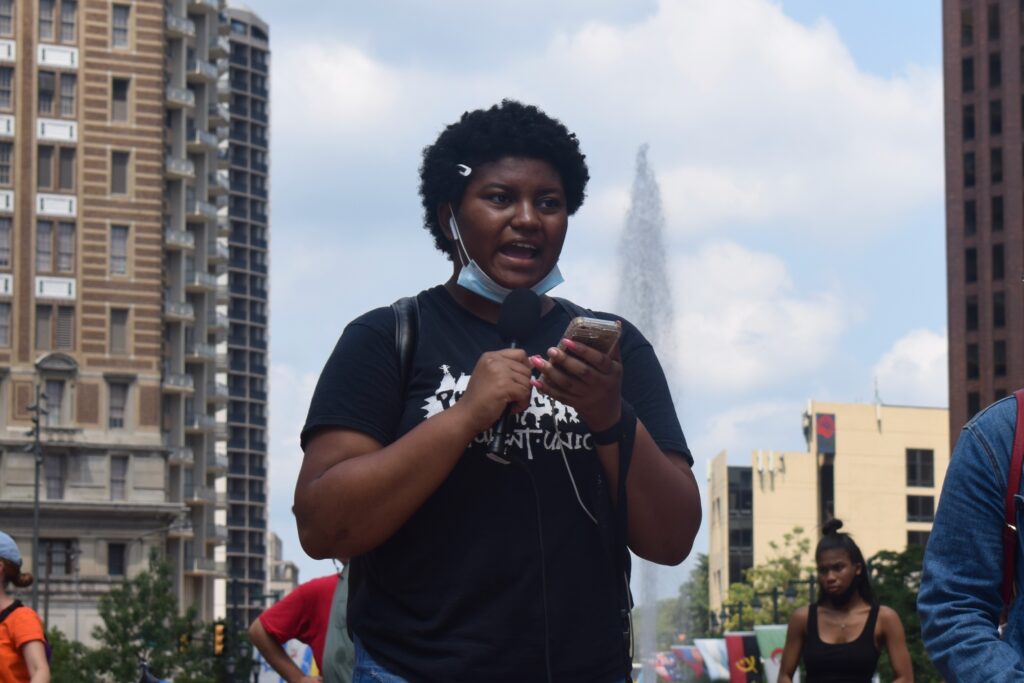
Each video or tidbit of information shared by Mariam or Jason is a tidbit of information that may have otherwise never been known to the world. Union members protesting, homeless people organizing, and homeowners protesting a pipeline all rely on storytellers to amplify their messages.
Without amplification of the working class, the media will always stand to reflect the interests of the ownership class. Boots on the ground reporting is a direct rebuttal to the images shown on the six o’clock news.
Jason continues to cover working class issues; at the moment he’s writing about fentanyl, Philadelphia’s homeless hotel, and the ongoing saga that is COVID. He’s producing season 3 of his podcast series 2100, which is an audio time capsule meant for the people of the year 2100 to listen to.
Mariam is currently working with MAP and a coalition of local organizations to push for decarceration in Philly jails during the COVID-19 pandemic, an authentic defunding of the police, and investment into community programs that support real safety. Additionally, she is supporting a team of volunteers at Philly We Rise to document local movements for social justice.

Mariam Dembele is an organizer and a multimedia journalist. She began writing in 2014, while she was a student at Temple University. Her reporting focused on student activism, community relations and changes to the surrounding area. Since then, she has continued to cover news, politics, culture and social justice issues throughout Philadelphia, with a focus on community-based solutions. In 2017, Mariam started working at Movement Alliance Project (MAP) as a production intern. With MAP, she has produced videos about the fight to end youth homelessness and the immigrant rights movement. She currently serves as the Communications Coordinator. Through her work, Mariam aims to further engage people in Philadelphia in social justice issues, to center community voices in the narrative and to amplify the continuous work communities are doing to build a more just Philadelphia. Mariam holds a B.A. in Journalism from Temple University. She also freelance writes for African-American Culture Magazine FunTimes, along with other publications.
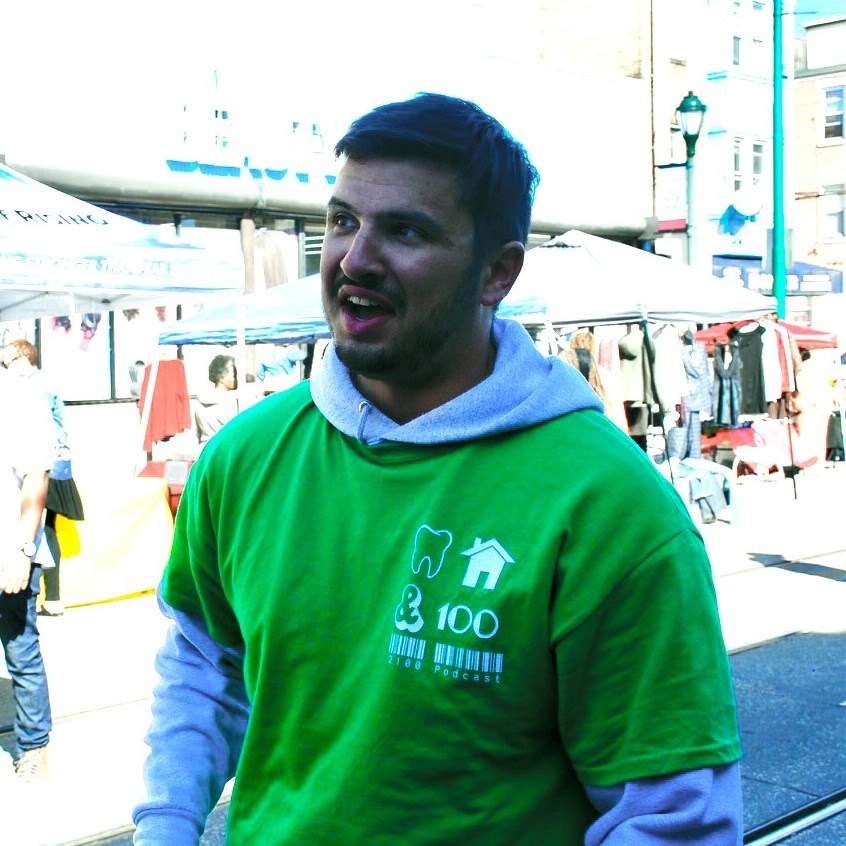
Jason Peters is a journalist and artist living in South Philadelphia. He has bylines with Billy Penn, WHYY, Green Philly, Grid Magazine, and Philly Weekly. He covers working class issues and whatever slips through the cracks.

Sorry, the comment form is closed at this time.